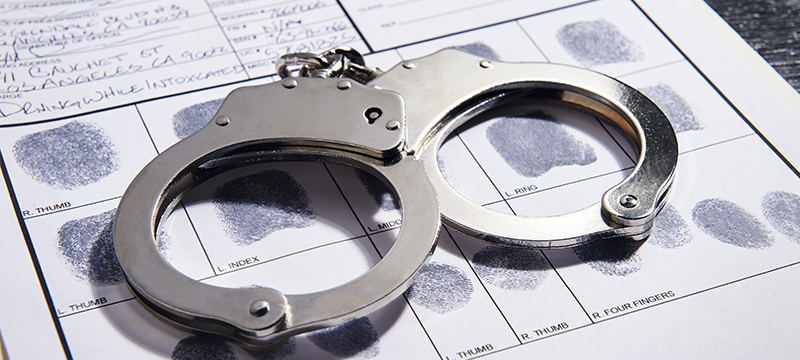Under Arrest: What to Expect at the Police Station
For most of us, committing a crime only occurs when we have broken road traffic law, but did you know there were 5.8 million police recorded crimes between 2019/20 in England and Wales?
The crime rate per 1,000 population in England and Wales has been at its highest since 2006/07 according to a report from Statista. The latest figures show that 102.8 per 1,000 committed crimes in 2019/20. This means that you had a 9.32% chance of being arrested last year. So, what happens when someone is arrested? And what can you expect if you are?
Our Criminal Defence team have answered some frequently asked questions for people who are under arrest.
What happens when I arrive at the police station?
On arrival at the police station, you should be informed of your rights.
When under arrest you have the right to:
- Tell someone you have been arrested
- A solicitor for free advice and representation
- Medical attention if you are feeling ill or injured
- Access to the Police Codes of Practice
For those under 18 years old, you must also be accompanied by an appropriate adult at the police station.
The police must try to contact parents, guardians, or carers of anyone under the age of 18.
Who can I have present while being interviewed by the police?
If you are under 18 years old, the custody officer must find details of who is responsible for your welfare. Where parents or guardians cannot be reached, this may result in the Local Authority appointing an appropriate adult for you, or you can choose another adult you trust unless that person is a witness in the case.
Everyone is entitled to have their own or a duty solicitor with them when they are being interviewed. A solicitor will help you understand the questions being asked while ensuring your rights are being protected.
All interviews undertaken under caution in the presence of a police officer are free of charge as the costs are borne by the Legal Aid Agency.
How long can the police detain me?
You can be held for 24 hours where the police have reason to believe you have committed an offence. If the alleged offence is serious, extensions to that time can be obtained to gather further evidence providing the police can show that they are acting expeditiously, to a maximum of 96 hours. For matters of terrorism, the maximum detention time, without charge, is 14 days.
Will I be searched?
The police will search you on arrival however, they can search you at any time while you’re in custody.
If the police have reason to believe you have hidden something in your clothing or in your body, they can do a strip search. This will involve you having to remove all your clothes. The strip search will be carried out by an officer of the same sex as you, somewhere you cannot be seen by anyone that is not on duty or of the opposite sex.
If you are under 18 years, you should be accompanied by an adult that you know and trust, although you do not have to have a chosen adult present if you don’t want to.
Will I have a photograph, fingerprints and a DNA sample taken?
Anyone under arrest will have their photograph taken whilst in police custody, even if they do not agree. Fingerprints are taken to assist with the police investigation and can be obtained each time you are detained.
Intimate Samples
You may also need to provide other samples to the police as part of their investigation. Hair, nails, blood, urine etc are some of the samples the police may want to take from your body however, they can only be taken if consent is given.
What are the possible outcomes of being arrested?
There are various ways the police can deal with an arrest; they are as follows:
- Police Bail – if the investigation is still ongoing and the police want to place conditions. This is for a period of one month during police investigation. If after the police have not concluded their investigation after that period, you must then be released under investigation (see below);
- Release Under Investigation – if the investigation has not concluded and there is no reason for you to be subject to conditions i.e., not to contact a witness etc, then you will be released to allow the police to continue with the investigation. In some cases, it can take the police many months before concluding the investigation;
- Charge – if the police and in some cases, the Crown Prosecution Service, consider that there is sufficient evidence already obtained to charge a suspect;
- No further action – the decision to take no further action is made when there is insufficient evidence to charge.
Cautions, Reprimands and Final Warnings
Instead of being charged, the police may decide to give you a caution, conditional caution, reprimand or final warning. These are usually given if the offence is minor, and you have admitted to the offence(s).
If you already have a caution or warning on your record, the police may decide to give you another depending on the offence where a charge would not be appropriate.
Cautions, warnings, and reprimands are not criminal convictions but can remain on record indefinitely.
If you have been accused of a crime, we strongly recommend seeking legal advice. It’s best to receive legal assistance from the start of your arrest, but it’s never too late. For more information, please visit Criminal Defence, or call 023 8023 4433 if you have any immediate concerns.
Disclaimer: Information on this webpage is not intended for legal purposes or advice. If you require legal advice or services you should seek a professional legal practitioner.




